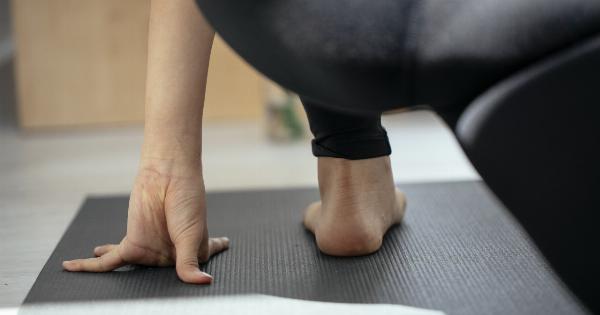Acute abdominal crisis is a medical emergency that requires urgent attention. It refers to a sudden and severe pain in the abdomen, which may be accompanied by other symptoms such as nausea, vomiting, and fever.
The condition can be caused by various factors and can range from mild to life-threatening. In this article, we delve into the world of Hippocrates, the ancient Greek physician, and gain insights into his approach to understanding and managing acute abdominal crises.
The Father of Medicine: Who Was Hippocrates?
Hippocrates, born around 460 BC on the Greek island of Kos, is widely regarded as the father of medicine. He revolutionized the field by introducing an empirical approach to diagnosis and treatment.
His teachings and principles have had a profound influence on the practice of medicine throughout history.
Hippocrates believed in the importance of observing and carefully documenting patients’ symptoms and the progression of their illnesses. His comprehensive records paved the way for a systematic analysis of disease patterns and treatment outcomes.
By closely examining Hippocrates’ texts, we can uncover his profound understanding of the acute abdominal crisis and how he approached its diagnosis and management.
The Acute Abdominal Crisis: Causes and Symptoms
The acute abdominal crisis can have numerous causes, making it a challenging condition to diagnose accurately. Some common causes include:.
- Appendicitis
- Gallstones
- Pancreatitis
- Perforated peptic ulcer
- Diverticulitis
- Bowel obstruction
Patients experiencing an acute abdominal crisis may exhibit a range of symptoms. These symptoms can include:.
- Sudden, severe abdominal pain
- Nausea and vomiting
- Fever and chills
- Distended abdomen and bloating
- Inability to pass gas or stool
Hippocrates’ Approach to Diagnosing the Acute Abdominal Crisis
Hippocrates believed in the power of observation and deduction when diagnosing an acute abdominal crisis. He emphasized the importance of a thorough physical examination to assess the patient’s overall condition.
One of Hippocrates’ most significant contributions to diagnosing the acute abdominal crisis was the recognition of the four cardinal signs. These signs serve as essential markers for identifying specific diseases:.
- Pain – The location and quality of pain can provide clues to the underlying cause of the crisis.
- Tenderness – Palpation of the abdomen can reveal areas of tenderness and further guide diagnosis.
- Rigidity – A rigid abdomen indicates inflammation or infection and helps narrow down potential causes.
- Rebound tenderness – Intensified pain upon the release of pressure can suggest a more serious condition.
Hippocrates was a firm believer in the power of pattern recognition. By carefully examining a patient’s signs and symptoms, he developed valuable insights that helped guide his diagnoses.
He observed that certain patterns of pain and tenderness can be indicative of specific diseases, allowing him to offer tailored treatment plans.
Managing Acute Abdominal Crises: Hippocrates’ Recommendations
Once Hippocrates identified the cause of an acute abdominal crisis, he focused on managing the condition effectively.
Hippocrates placed great emphasis on non-invasive treatments that aimed to restore the body’s balance and self-healing abilities.
Some of Hippocrates’ recommendations for managing acute abdominal crises included:.
- Rest and fasting – The digestive system could benefit from a temporary break to allow inflammation to subside.
- Herbal remedies – Hippocrates promoted the use of herbal medicines to stimulate the body’s natural healing processes.
- Dietary adjustments – He advised patients to adopt a healthy diet to support recovery and prevent future episodes.
- Patient comfort – Hippocrates recognized the emotional aspect of pain and emphasized providing comfort and reassurance to his patients.
The Legacy of Hippocrates in Modern Medicine
Hippocrates’ approach to understanding and managing the acute abdominal crisis laid the foundation for modern medicine. His keen observations, attention to detail, and holistic approach to patient care continue to shape medical practices.
Today, medical professionals continue to follow Hippocrates’ teachings while utilizing advanced technological tools for accurate diagnoses.
While treatment methods have evolved, the importance of careful observation, empathy, and individualized care remains central to medical practice.
In Conclusion
Hippocrates’ passion for understanding and treating the acute abdominal crisis resonates through the ages. His principles and teachings have left an indelible mark on the field of medicine.
By recognizing the significance of observation, pattern recognition, and patient-centered care, Hippocrates instilled values that continue to influence and guide medical professionals today.





























